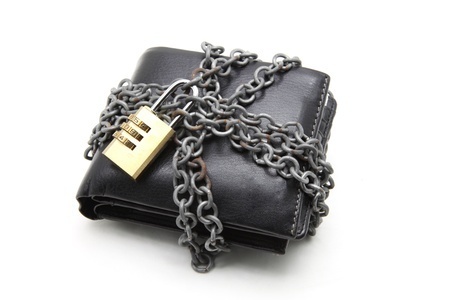By Amy Miller, AFC®

We’ve been discussing scams and fraud against our active-duty service members, veterans, and their families this month and the top ones targeting them. This week I thought we would do a quick recap and discuss some ways to spot scams and protect yourself.
Fraud by the Numbers – a quick reminder
*Fraud attacks in the military community grew 69% in 2021 according to the FTC
*Active-duty service members are 76% more likely than civilians to report identity theft on existing accounts
*Service members and veterans report the highest amounts of losses due to fraud and reached around $267 million in 2021
*Imposter scams are the most frequent type of fraud targeting active-duty service members and their families.
*Benefit scams make up around 47% of scams targeting veterans
*U.S. Veterans are around 40% more likely to lose money due to fraud than civilians
Red Flags
Here are a few things that, if encountered, should put you on high alert.
*Personal Identifiable Information (PII) – being asked to verify or confirm your personal information (social, date of birth, etc.) Legitimate businesses and financial institutions will not call you and ask for this information
*Give Aways – free money is always enticing, which is exactly why it is used so often
*Secrets – being asked to not tell others about an exclusive offer
*Act NOW! Pressure to quickly take part in the offer or being told you must complete a task before a certain deadline to avoid a penalty or even arrest
*Request for Money – being asked to conduct business and send funds in what would be considered a “non-traditional” way like money transfer apps, wires transfers, money orders or pre-paid debit cards
*Contest winner – asked to pay taxes up-front before receiving a prize
*Misspellings or improper grammar in correspondence
Lastly, trust your gut! Ever heard that old saying “If it sounds too good to be true, it typically IS”?
Protecting Yourself
As I stated last week, awareness is not protection! It’s important to be on alert and vigilant in protecting yourself and your family from fraud and identity theft. Here are a few tips:
*Freeze Your Credit. You will need to do it at each of The Big Three reporting agencies. You can do so by contacting each of them. I’ve provided links and phone numbers below:
Equifax (800) 349-9960
TransUnion (888) 909-8872
Experian (888) 397-3742
*Use strong and unique passwords (and not the same one on every account)
*Set account alerts on all accounts online. This will alert you to changes in balances, withdrawals, charges, etc.
*Shred all personal, financial, and medical information
*Keep all personal identifying information like your social security card and birth certificate in a secure and safe place (Not your wallet!)
*Do not print your social security number or driver’s license number on your checks (yes, there are still people that request this)
*Be careful of unsolicited email offers or phone calls – do not provide your personal information. When in doubt, research and contact the company/business directly – remember emails, websites and phone numbers can be “spoofed” and appear to be legitimate on caller ID, etc. Do not call back a number provided or click on unfamiliar links.
*Text is currently the fastest-growing contact method for scammers. They will often impersonate a family member or friend to get you to respond to some emergency or urgent need. Contact the person directly and confirm everything before acting.
*Add your number to the National Do Not Call List. You can do so by registering at https://www.donotcall.gov/ or by calling 888-382-1222. The site also allows you to report suspicious calls as well.
*Do not send money to anyone in advance as a condition to receive a prize, etc.
*Research any charities before donating. You can do so here: https://www.give.org/
*Make your social media accounts set to private and only visible to friends and family. Don’t accept friend requests or messages from individuals you do not know – even if they are “friends” with some of your friends.
*Fortify all your devices and make sure they are all up to date.
*Avoid connecting to public Wi-Fi unless you enable a virtual private network (VPN).
*Don’t be afraid to hang up or walk away
*Use a VA Accredited representative if you need help with your benefits. You can search a database here: VA Accreditation Search
If you have been a victim of fraud or identity theft, file a police report and report it to the FTC at one of these websites: https://www.identitytheft.gov/#/ or https://reportfraud.ftc.gov/#/
Growing up we were all taught the “stranger danger” concept….to not trust anyone you don’t know.
I recently read a parenting article that said we need to get away from teaching children that all strangers are bad because they may need help from a stranger one day. I somewhat agree with that, so I’ve decided to also teach my children to question things and be aware of “tricky people” in addition to strangers. Both concepts apply here – any stranger asking for your PII could be a danger and should be treated as such AND we should always be alert and watching for those “tricky people” as well.